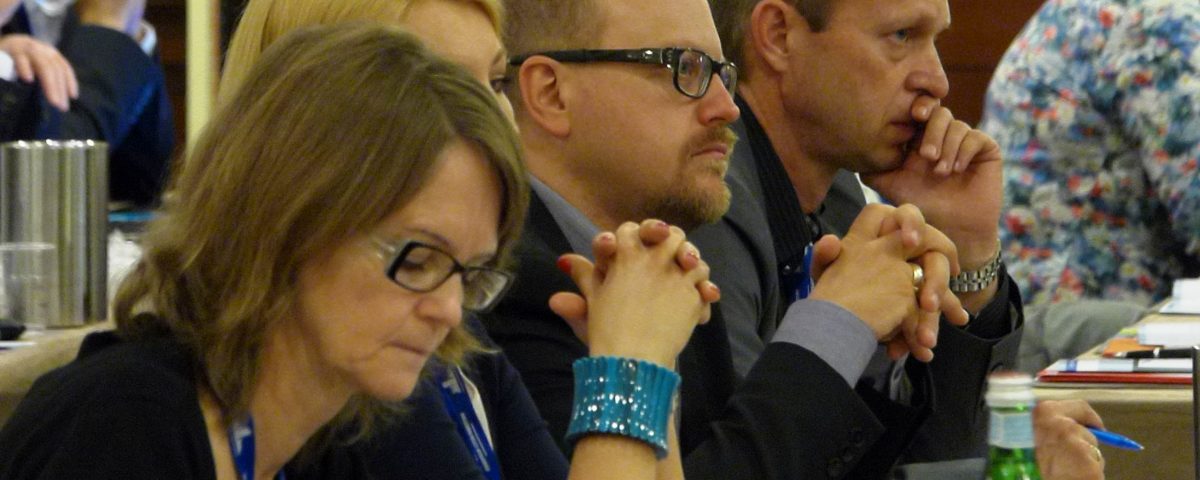Creating the city – European Cities demonstrate the crucial importance of events and infrastructure projects in shaping the image of a city

Cities are increasingly using events to improve their image, stimulate urban development, attract visitors and investment. During last European Cities Marketing (ECM) Annual Meeting in Turin on June 3-6, 2015, European cities confronted their experiences through best practices exchange, with the constant objective to improve operational efficiency and make better business decisions.
Today, winners of major events bids (World Expo, UEFA EURO, Olympics…) should begin planning far ahead, often a decade or longer in advance, recognizing that success in hosting such events must include the supporting infrastructure required. It is important for cities to demonstrate the lasting benefit of that investment: a true legacy for the local community, with the infrastructure and the iconic image the city can build on.
Events shape the cities and make them internationally attractive
Keynote speaker, Valentino Castellani, president of Torino Strategica and former mayor of Turin, gave an iconic and local example of the positioning of Turin as city on the international scene with the Olympics. The Piedmont capital faced the challenge of post-industrial transformation and the Olympic Games forced the city to convert from a manufacturing town to a European regional capital. All this took place against a backdrop of major infrastructure projects (especially crossrail system, Metro, new high-speed railway lines…). 2006 Games were the definite turning point from the depression of the early 90’s to a new pride in affiliation.
After the 2008 banking crisis that put Iceland on the list of terrorist states and the Eyjafjallajökull volcano that erupted in 2010 paralysing all European air traffic, Reykjavík decided to improve its image in 2010 by organising many winter festivals: as a result, 99% of winter guests say that they will recommend Reykjavik to friends.
In the case of Istanbul, the infrastructure changes for the expansion of convention centres (7 convention centres and 3 exhibition halls) transformed the city into a meeting hub, strengthening the international image of the city.
Events and infrastructure are economic development tools and a mean of enhancing the image. They make cities more attractive.
Events generate economical and social benefits
The impacts of these events are multiple: they are means of revitalising cities’ economies, creating infrastructure and improving cities’ image.
With all the infrastructure changes related to the organisation of the 2006 Olympic Games in Turin, while bedspaces rose by 42% between 1999 and 2014, the number of bednights increased by 102% and the number of arrivals by 122%.
In Reykjavik, the winter events result has been that the number of arrivals and bednights doubled in less than 4 years.
The meeting hub statute of Istanbul has consequently increased the number of arrivals and bednights. Indeed, over 130 international conferences and many major events (G20, B20…) are hosted each year and congress tourism contribution to Istanbul’s economy is estimated about 294 million € in 2014.
When asked in a recent survey conducted by the Culture & Events ECM Knowledge Group, ECM Members stated that the main reasons of attracting events to their city was first to increase the image of the city and secondly to drive more bednights.
All these events and infrastructure implementation have indeed resulted in an increase in arrivals and bednights, during the event, but also in the following years as well. These events attract business and tourist visitors, new residents, investments and jobs which undeniably stimulate the local economy.
Speaking about the meeting theme, Ignasi de Delàs, European Cities Meeting President, said: “Events and infrastructures are an important part of cities’ strategies to attract visitors. Once again, this meeting allowed ECM members to share knowledge and expertise and find new synergies. The panel discussion provoked fruitful debates and each attendee went back home with new ideas and new perspectives to implement locally.”
The conference was moderated by Marco Esser, Managing Director at Den Haag Marketing. Throughout the day, a series of case studies of European Cities covered: Festivals with James McVeigh from Festivals Edinburg and Karen María Jónsdóttir from Visit Reykjavík, Convention centres rehabilitation with Özgül Özkan Yavuz from Istanbul Convention & Visitors Bureau, UEFA EURO with Marta Stawińska from Poznań Tourism Organisation and World Expo with André Moura from Turismo de Lisboa.
The next ECM meeting will take place in Madrid, February 24-27, 2016 and will discuss whether or not city branding is still relevant in a digital era.
*European Cities Marketing is a non-profit organisation improving the competitiveness and performance of leading cities of Europe by providing a platform for convention, leisure and city marketing professionals to exchange knowledge, best practice and widen their network to build new business. European Cities Marketing is promoting and linking the interests of 110 members from more than 100 major cities in 36 countries.
Contact information
Flavie Baudot, press@europeancitiesmarketing.com, +33 380 56 02 00